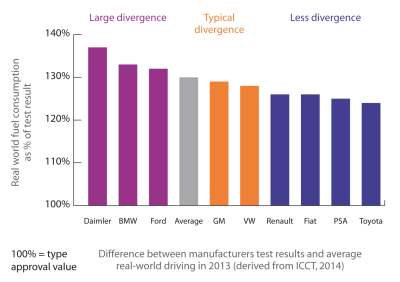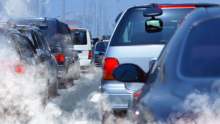Since EU rules have demanded it, we have become used to car companies displaying fuel consumption and CO2 emission values on all promotional materials. In the UK, cars with emissions lower than 100 g/km pay no car tax, and those with higher emissions pay gradually increasing amounts up to £1100 for the worst gas guzzlers.
With nearly 70% of people now buying new cars with claimed lower emissions, more miles per gallon (mpg), and therefore lower tax, it is clear that small differences in these figures can be important in driving sales.
But as well as coming up with better design innovations to meet emissions targets, it appears that most companies are also cheating the spirit, if not the letter, of the tests as well.
Independent testing by European consumers’ associations and other third parties is simply unable to replicate the claimed mpg performance in almost all cases.
Tricks like removing wing mirrors, over-inflating tyres and taping up doors can be combined with test conditions which do not mimic real-world driving scenarios to achieve impossibly flattering results.
In the words of the campaign group Transport & Environment (T&E), "The gap between test results and real world performance has become a chasm, increasing from 8% in 2001 to 31% in 2013 for private motorists and without action it is likely to continue to grow to over 50% by 2020.”



